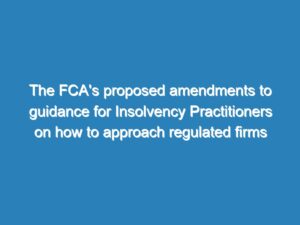The Matrimonial Property Rules 2022 (hereinafter “The Rules”), which are made pursuant to section 18 of the Matrimonial Property Act of 2013 (hereinafter “The Act”), were gazetted on August, 2022. The rules were made for the sole purposes of facilitating, ensuring easier and better resolution of matrimonial property disputes under the Act.
The salient features of the rules are:
Persons who can institute matrimonial property disputes – Rule 4
The Rules stipulate that the following persons can institute proceedings claiming any right in relation to matrimonial property:
A spouse;Any person against whom a spouse has made a conflicting claim in respect of property;A trustee in bankruptcy/ An executor under a will or grant/ An administrator or personal representative of the estate of the spouse for an order or declaration relating to the status, ownership, vesting, or possession of any specific property by or for the beneficial interest of a spouse or former spouse.
This rule recognizes the right of a third party to claim interest or seek declaration of interest in matrimonial property for or on behalf of a spouse or former spouse. The third parties may apply for declaration of rights or interest in matrimonial property even during the subsistence of a marriage.
Time limitation for filing matrimonial property claim – Rule 5
The rules mandate that a matrimonial property dispute should be filed within 12months from the date of an absolute decree, in a case of dissolution of marriage. Nonetheless, the rules give Courts the discretion to extend the time for instituting a matrimonial property claim.
Court in which to file the claim – rule 6
A claim in matrimonial property can either be filed in the Magistrate’s Court or the High Court. The choice of forum would therefore be dependent on the value of the property vis a vis the pecuniary jurisdiction of the Court.
Different types of matrimonial property claims – Rule 7
The Rules make a distinction in how to institute a matrimonial property dispute in the following ways, depending on whether or not the marriage has been dissolved;
Where a party is seeking a declaration of rights to property, as part of a divorce proceedings under the Marriage Act 2014, the application for declaration of rights is made as part of the reliefs in the Divorce Petition; andAny other claim or for a spouse who is seeking a claim or interest after the dissolution of a marriage, they apply to court through Originating Summons.
It is important to note that the Rules recognize the application of Matrimonial Proceedings Rules 2020, in the instance where a person seeks declaratory orders in matrimonial property in dissolution of marriage proceedings.
Service of summons – Part III
Service of summons under these rules must be made personally to the Respondent or their appointed agent or their Advocate. Where any party seeks to serve by electronic means (email or WhatsApp) or registered courier services, they can only do so with the leave of the Court.
Upon service, the Respondent has 14 days to enter appearance.
Conduct of proceedings – Part V
In as much as the Rules recognize the application of the Civil Procedure Rules in conduct of proceedings, the Rules provide specific modes of conduct of proceedings in certain instances:
In the cases of matrimonial disputes relating to declaration of rights in property in dissolution of marriage proceedings, the Matrimonial Proceedings Rules 2022 shall apply.A Respondent who enters appearance but does not file a reply to summons has a right to be heard on any question of law arising in the claim. This party can additionally cross-examine witnesses and make oral or written submissions.Hearings of matrimonial property disputes shall be on a day-to-day basis and shall not be adjourned except where the Court is satisfied of the reasons for granting such applications.
Alternative Dispute Resolution- Rule 22
Article 159(2) (c) of the Constitution of Kenya recognizes mediation as a form of dispute resolution to be applied by courts and it under this auspice that Rules entrenches the use of the alternative dispute resolution mechanism in resolving matrimonial conflicts. Therefore, the courts can at any stage in the matrimonial proceedings, but before final orders in the determination of the summons, refer any or all of the issues in dispute to mediation. The mediation will be conducted under the umbrella of the court and will be guided by the practice and procedure in force as provided for the court annexed mediation which was launched in 2016. If at all a medication agreement is reached among parties then it shall be recorded as an order of the court but if the parties fail to agree of any of the issues the court will thus proceed to hear and determine the remaining issues.
Reliefs to be granted by the Court – Rule 30
The Court, upon hearing the claim, may grant a variety of reliefs including, but not limited to:
An order for sale of matrimonial property and division/vesting of the proceeds of sale;An order for common or separate ownership of matrimonial property by spouses;An order for partition of matrimonial property;An order for payment of monies by one spouse to another;An order for transfer of land or an interest in land or shares or title documents of property; andAn occupation order for a spouse.
These Rules are a welcome development in the conduct of matrimonial disputes or claims and in the implementation of the Act. They set down a concise procedure in commencement, handling and determination of Matrimonial Property disputes under the Act.
The post THE SALIENT FEATURES OF THE MATRIMONIAL PROPERTY RULES 2022 appeared first on Alakonya Law LLP.
Alakonya Law LLP Read More







